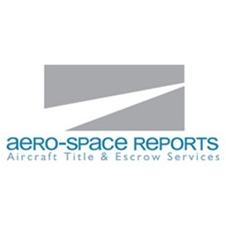Early payoffs
Prepayment penalties cover the cost of doing business

In a nutshell, it costs money to lend money. Generally, the transactional costs of a bank to lend money are covered through the spread of interest rate over the life of the loan minus the bank’s cost of money at the time of loan origination.
In an extremely low interest rate environment like the one we’re currently experiencing, lenders experience rate compression, whereby the pressures from what depositor’s demand and what the market will bear for interest on loans makes it challenging to cover their costs.
Let’s say you get a five-year loan on an aircraft. Then just a couple of years later, you turn around and pay it off early. Good for you, right? Well, what’s good for you might be bad for the bank. If the bank originally lent you money when the market was 5 percent on loans and now the market is 4 percent, the bank must redeploy the money at lower net interest margin. As a result, your early payoff would significantly eat into or completely decimate the bank’s ability to cover the loan’s administrative overhead. This is particularly true when rates are dropping. Adding a prepayment penalty guarantees the bank a non-interest revenue source from which to cover the sunk transactional costs (as well as redeployment of funds) associated with that loan.
We’re often asked, “Can I get a loan without a prepayment penalty on it?” Yes, sometimes. The most important two conditions lenders consider for removal of prepayment penalties from a loan package are if the rate is floating, or if the lender is sufficiently comfortable that they won’t have this payoff and have to replace it with a less profitable loan. In cases where negotiating out the prepayment penalty is possible, the lender’s costs still need to be covered. The burden of potentially shared out-of-pockets will be shifted to you completely. Out-of-pocket expenses typically include appraisal, titling, settlement, and other legal document paperwork associated with closing. In other words, there is no free lunch. The likelihood of whether you’ll pay off early is an important factor you should consider. It’s often worth it to pony up the closing costs up front versus, say, paying a 1 or 2 percent prepayment penalty.
In most circumstances, if you’re thinking about buying another airplane in the short term, prepayment penalties can be frequently negotiated away if you stay with the existing lender on a new loan of greater or equal amount.
One major caveat: If you think you’re only going to hold the loan for three to six months, a year maximum, before repaying it, an aircraft loan may not be the best option for you. The expense and time invested in the aircraft loan process—because the lender is digging into the aircraft plus potentially your personal and business financials—make it inefficient in the short term. You may instead consider bridge financing.
There may be some less expensive and more efficient alternatives to consider, including taking a margin loan on your marketable securities or a line of credit through your business or a home equity line of credit. All of these could potentially be more efficient than investing two to four weeks in waiting for the airplane and you to be vetted before a lender will grant you an airplane loan.
To better understand your options and review your specific situation, give us a call. We’re here to help our members.
aopafinance.org
800-62-PLANE (75263)

